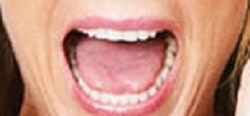Halitosis, Bad Breath
Halitosis, Bad Breath
Halitosis is also known as bad breath. It is an embarrassing thing and in some cases and even causes anxiety. Many solutions are present at the store shelves. They are overflowed with chewing gums, mints, mouthwashes, and many other products are available to fight bad breath. But these products temporarily remove the bad odor and don’t resolve the underlying cause.
If simple self-care remedies and techniques don’t solve the problem, report to a dentist for identifying the problem.
Symptoms
The symptoms of halitosis vary and depend upon the underlying cause. Some people worry too much about their breath even though having no mouth odor or a little, while there are such people who have bad breath and don’t even know it. Because it’s difficult to recognize how your breath smells, ask a friend or relative to confirm your bad-breath odor. Some common symptoms that are rarely noticed are:
- Dry mouth
- White-colored tongue mainly at the back of the tongue
- Plaque buildup around teeth
- Bad odor especially in the morning
- Burning tongue
- Thick saliva
- Bitter, sour, and metallic taste in the mouth.
Causes
Halitosis starts in the mouth and mainly possible causes are:
- Bad oral hygiene
- Smoking and tobacco use
- Alcohol intake
- Plaque buildup
- Food items that stay around the teeth.
- Intake of medications
- Infections and ulcers in the mouth
- Dry mouth
- Infections in nose or throat, sinuses, tonsils, and postnasal drip can cause bad breath.
- GERD, reflux of stomach acids, acidity, metabolic disorders cause bad breath.
Treatment
To eliminate bad breath avoid cavities and reduce the risk of developing gum disease, and regular practice good oral hygiene. Further treatments vary and depend on the hidden cause. If bad breath is caused by an underlying health condition, the dentist will likely refer to a physician or primary healthcare worker.
For causes related to oral hygiene, the dentist will tell you multiple dental measures to resolve this problem. Some of them include:
- The dentist recommends a mouth rinse that kills the bacteria and prevents growth.
- The dentist also recommends an antibacterial or cavity-free toothpaste to kill the bacteria and prevents plaque buildup.
- If it is because of gum disease, the dentist may refer to a gum specialist or periodontist. Gum disease causes gums to pull away from your teeth, leaving deep pockets that fill with odor-producing bacteria.
- Sometimes the dentist refers to professional cleaning to remove these odor-causing bacteria.
- The dentist may also recommend replacing a faulty tooth that contributes to giving a breeding ground for bacteria.
Home Remedies
Some lifestyle changes and DIY remedies can also improve oral health as well as bad odor. Some effective remedies are
- Brushing teeth after eating.
- Use fluoride, anti-cavity toothpaste.
- Clean braces or dentures before wearing or after removing.
- Avoid dry mouth.
- Avoid tobacco use
- Change the toothbrush after every 2 to 3 months.
- Orange, pineapple juice, yogurt helps in removing bad breath and odor
- Use cloves
- Rinse mouth with salt water for fresh breath.
